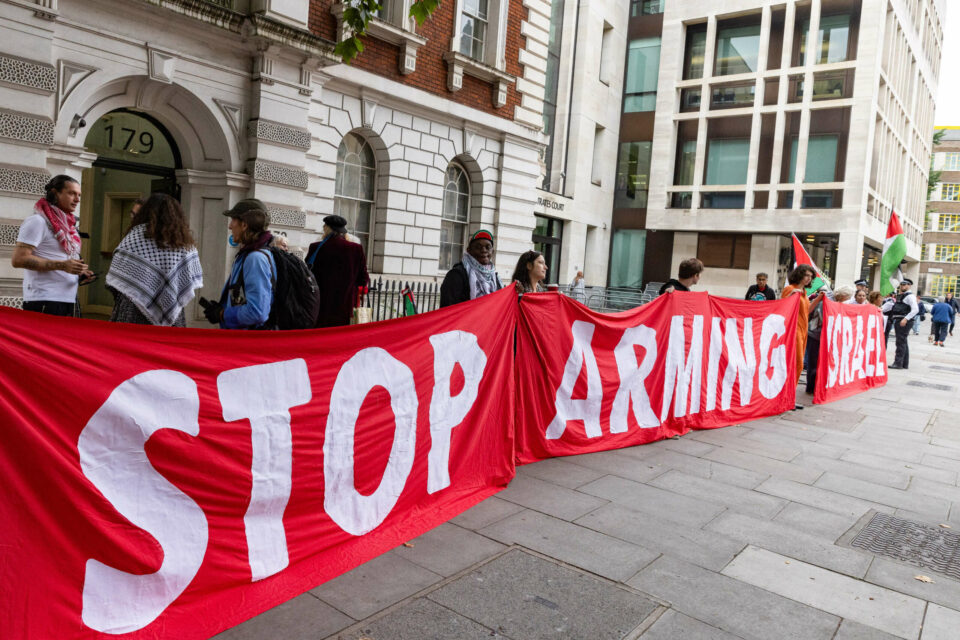– What are some high-profile case studies that illustrate the impact of the UK’s crackdown on Palestine solidarity activists and journalists?
The United Kingdom has recently made headlines for its controversial crackdown on Palestine solidarity activists and journalists using a terrorism law. This move has sparked outrage and concern among human rights advocates and freedom of the press supporters. The UK’s decision to invoke terrorism laws against individuals expressing solidarity with Palestine has raised questions about the country’s stance on freedom of expression and support for the Palestinian cause.
Recent Developments:
In recent months, the UK has taken a harsh stance against individuals who have expressed support for Palestine. The UK government has used counter-terrorism legislation to target activists and journalists for expressing solidarity with the Palestinian people. This has resulted in a chilling effect on freedom of speech and has raised concerns about the erosion of democratic rights in the UK.
The Terrorism Act 2000:
The Terrorism Act 2000 is the primary legislation used by the UK government to crack down on Palestine solidarity activists and journalists. This law gives the authorities broad powers to investigate and prosecute individuals suspected of engaging in terrorism-related activities. However, the use of this law to target those expressing support for Palestine has been widely criticized as an infringement on free speech and political expression.
Impact on Palestine Solidarity Activists:
The crackdown on Palestine solidarity activists has had a significant impact on their ability to advocate for Palestinian rights and justice. Many activists have reported facing increased surveillance, harassment, and even criminal charges for their peaceful activism. This has created a climate of fear and intimidation, making it difficult for activists to express their solidarity with Palestine without facing legal repercussions.
Impact on Journalists:
Journalists covering the conflict in Palestine have also been targeted by the UK government’s crackdown on activism. Several journalists have reported being singled out for their coverage of Palestinian issues and have faced threats of legal action under the Terrorism Act 2000. This has raised concerns about press freedom and the ability of journalists to report on the Israeli-Palestinian conflict without fear of reprisal.
International Reaction:
The UK’s crackdown on Palestine solidarity activists and journalists has sparked international condemnation from human rights organizations, press freedom advocates, and political leaders. Many have called on the UK government to respect the rights of individuals to express their solidarity with Palestine without fear of persecution. The United Nations and European Union have also expressed concerns about the implications of the UK’s actions on freedom of expression and human rights.
Benefits and Practical Tips:
In response to the UK’s crackdown on Palestine solidarity activists and journalists, many have called for increased solidarity and support for those facing legal challenges. International human rights organizations have provided practical tips and legal support for activists and journalists targeted by the UK government. Additionally, advocating for the protection of freedom of expression and press freedom has become a priority for many individuals and organizations worldwide.
Case Studies:
Several high-profile cases have highlighted the impact of the UK’s crackdown on Palestine solidarity activists and journalists. Individuals facing legal challenges for their activism have become symbols of the broader crackdown on freedom of expression in the UK. These cases have drawn attention to the need for greater protection of political expression and press freedom in the UK and around the world.
the UK’s crackdown on Palestine solidarity activists and journalists using terrorism laws has raised serious concerns about the erosion of freedom of expression and press freedom. The targeting of individuals for expressing solidarity with Palestine has sparked international condemnation and calls for greater protection of human rights and democratic freedoms. As the UK faces criticism for its actions, the global community must continue to advocate for the rights of those facing legal challenges for their activism and journalism.
On August 29, Sarah Wilkinson, a prominent Palestine activist and journalist, was detained by 12-16 police officers in the UK under the Terrorism Act 2000 for her online content. The arrest was part of a wider crackdown on voices advocating for Palestine in the UK, with other figures like Richard Medhurst and Richard Barnard facing similar charges. While Wilkinson’s bail conditions were dropped a week later, concerns have been raised about the growing use of counter-terrorism legislation to silence dissenting voices.
The Terrorism Act 2000 has been in effect for over two decades in the UK and has come under scrutiny for its broad definition of terrorism. Amnesty International has expressed reservations about how this definition can stifle political expression and used as a tool to suppress those opposing Israeli actions against Palestinians. The act has resulted in arrests of protesters, activists, and journalists critical of Israeli occupation and apartheid policies.
The recent surge in arrests points to an alarming trend where individuals are targeted for their solidarity with Palestinians. Activists like Hiba Hajaj have noticed a significant increase in people protesting against Israeli actions since last year. Despite efforts to deter protests through arrests under the Terrorism Act, support for Palestinian rights continues to grow.
Wilkinson’s arrest is seen as an attempt to silence journalists reporting on the plight of Palestinians by her family members as well as her peers at MENA Uncensored. Calls have been made by international organizations to release Wilkinson immediately.
Additionally, complicity by some governments like that of the UK is criticized concerning arms exports to Israel despite its involvement in acts deemed genocidal by many activists and human rights groups.
Palestine advocates like Richard Barnard have also faced charges under anti-terrorism laws due to their support for Hamas. Social media censorship adds another layer within this narrative where posts related to Palestinian issues are being removed from various platforms such as Instagram, TikTok, and Facebook.
Despite these challenges posed by authorities trying to control narratives surrounding Palestine advocacy efforts on social media or through detentions or court appearances; Hajaj firmly believes that freedom will eventually prevail.


